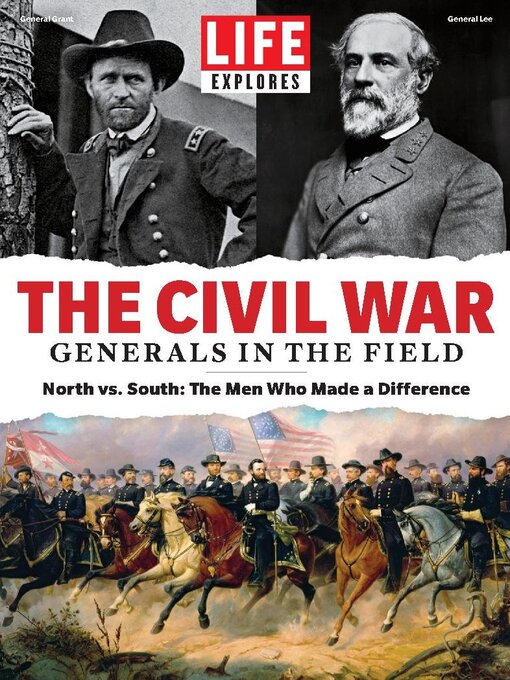It was a four-year struggle for the survival of a nation and for its soul, in which 620,000 Americans died largely over the question of whether human beings could be owned as property, and a state’s right to secede from the union. From the early days of the conflict through the collapse of the Confederacy, this LIFE Explores special edition highlights the Civil War’s legendary battles and brings a particular focus to many of the generals, including Ulysses S. Grant, Robert E. Lee, “Stonewall” Jackson, William Tecumseh Sherman and other generals, celebrated and obscure, who led North and South to victory and defeat.
LIFE Explores the Civil War • GENERALS IN THE FIELD
1861-1862
First Fire on Fort Sumter • On April 12, 1861, the Confederate forces attacked a U.S. Army post, and the Civil War began
Winfield Scott’s Derided “Anaconda Plan” • An aging military strategist advised a naval blockage to bottle up the entire Southern coastline
Beauregard And McDowell Face Off • Inexperienced soldiers clashed at First Bull Run
Benjamin McCulloch Takes Wilson’s Creek • The South gained ground in a bloody contest on the outskirts of Springfield, Missouri
Ulysses S. Grant Rises To Command • The leader’s military career started slow but gained momentum with the outbreak of war
Grant Attacks Forts Henry and Donelson • Union forces took the offensive in Tennessee, aiming to seize the Mississippi River and split the Confederacy
Albert Sidney Johnston Falls at Shiloh • On April 6, 1862, Confederates struck the Union Army of the Tennessee—and lost a revered general
Benjamin Butler: A Beast of a General • A controversial military leader took control of New Orleans, issuing commands that provoked Southern outrage
The War Changes Course at the Seven Days’ Battles • Robert E. Lee surprised Union troops at Richmond and humiliated a brash, young officer
Robert E. Lee: The Confederacy’s Great Hope • The loyal Virginian chose to side with his home state despite personal beliefs
Stonewall Jackson Wins at Shenandoah • Lee’s “right arm” outmaneuvered Union leaders
Lee’s Maneuvering Yields a Major Southern Victory • Second Battle of Bull Run, August 28–30, 1862
The War’s Bloodiest Day • The Battle of Antietam, September 17, 1862
1863
Fighting Joe Hooker Takes Charge • The strongheaded military leader was willing to risk heavy casualties
Lee Outsmarts Hooker At Chancellorsville • Confederate forces triumphed, and the North suffered another humiliating defeat
George Gordon Meade Assumes Command • The Army of the Potomac was once again under new leadership
Shots Ring Out At Gettysburg • Union and Confederate forces descended on a Pennsylvania town, and fateful decisions set the course for battle
Battle Lines are Drawn • Soldiers from both sides stretched around Gettysburg in a test of strategy and strength
The High-Water Mark • General Meade accurately predicted that Confederate forces would attack his line at the middle. Though the rebel charge was impressive, it was turned back by well-prepared Federal troops
Pemberton Surrenders Vicksburg to the North • Double defeats left the Confederates reeling
Braxton Bragg’s Army Breaks Down in Tennessee • The unpopular general lost Chattanooga to Grant and left the South vulnerable
1864-1865
A Leader With a Vision • When Ulysses S. Grant was promoted to commander of all Union troops, he accepted on the condition that he would work from the field, not from Washington
Grant vs. Lee: The First Battle • The victor of the West encountered the military genius of the East
The Battle of Spotsylvania Court House • After Fredericksburg, Lee rushed his...
